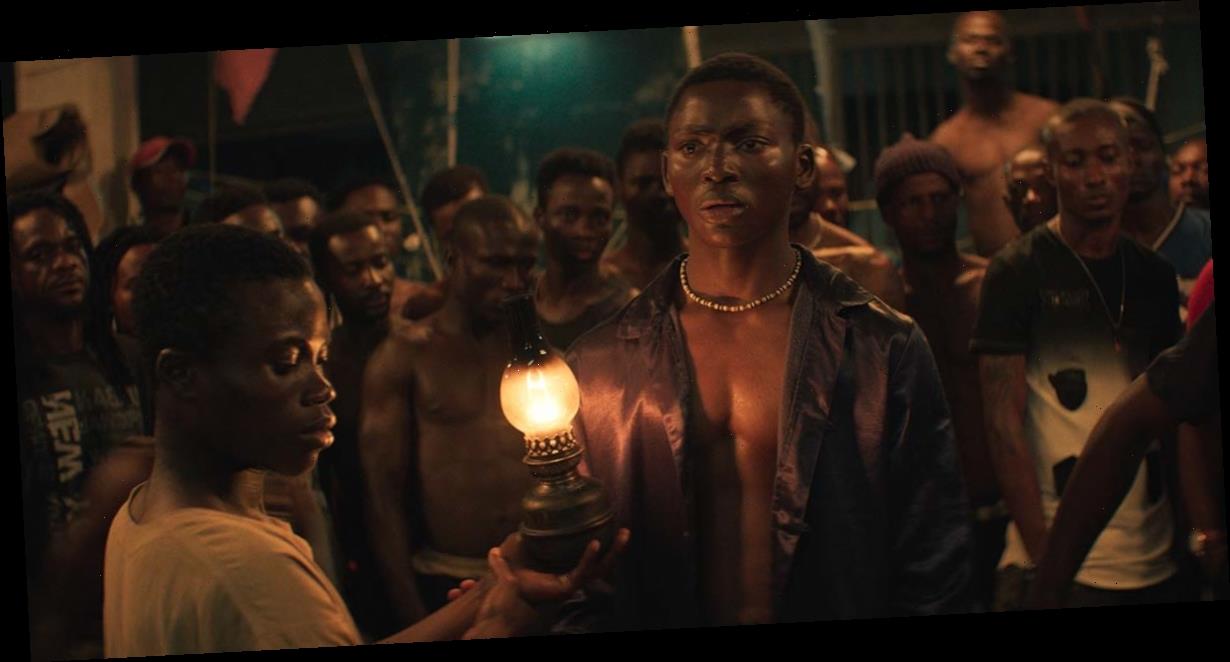
- Golden Globe Awards
Night of the Kings (Ivory Coast)
La Maca: it is the largest prison in the Ivory Coast in West Africa, where more than five thousand inmates live by their own rules in a crowded hellhole. Aging and ailing Blackbeard (Steven Tientcheu, seen in Ladj Li’s Les Misérables), reigns as its ruthless boss while challenged by rival pretenders eager to take his throne. To keep his power, he renews the tradition of the “Roman”. When the red moon rises, a chosen prisoner is forced to tell stories all night long, like a modern-day Scheherazade. A young thief (Kone Bakary) is designated. He is a microbe, the name given to ruthless gang members, mostly aged from 8 to 18, who terrorized the population of the capital Abidjan, in the aftermath of the second civil war that devastated the country between 2010 and 2011. “Roman” starts narrating, and embellishing along the way, the life of Zama King, a legendary crime lord and “microbe chief” whom he knew. Before long, his rambunctious captive audience begins to react and interact. Intervals of trance like sequences, mime outbursts, breakdancing performances and martial art demonstrations by the prisoners provide a hallucinatory and sensory experience, temporarily blurring the frontier with reality of a world that seems at times on the verge of imploding.
Night of the Kings is Ivorian Philippe Lacôte’s second feature, partly inspired by real-life events that happened in his home country. “I wanted to address the legacy and impact of someone like Zama King who ended up hacked to death by an angry mob in 2015,” explains the filmmaker who has several documentaries under his belt. “I met one of his best childhood friends who told me his story and showed me photos, so I had all the necessary background, but I did not want to make a classic biopic. I wondered how did the violence tip over from the war into society.”
He also knew of La Maca firsthand. “My mum was a political activist in the pro-democracy movement in the 80s and was imprisoned there for some time when I was a child, so I remember visiting her.”
For obvious reasons, it was not possible to film inside the real prison but “25% of our actors were ex-cons. And I brought people from martial arts backgrounds, dancers, singers and contortionists to inject this culture into the film. It was important that the prison was not simply a place to start the story and then have flashbacks.”
Adds Lacôte, “Night of the Kings is about the fight for power. It is difficult not to think about Ivory Coast, about our leaders, about the fight we have been in for twenty years now. But it’s not a direct metaphor. It is important today to make films in Africa which includes our vision of the world. We need to put in our perception and our culture. The culture of the Ivory Coast is not too logical, unlike the European one. The border is very fine between real things and magical things, invisible worlds and physical worlds, dead people and alive people. It was important for me to move between modern world, ancient world, mythic world and mystic world. It’s our way to see life.”

